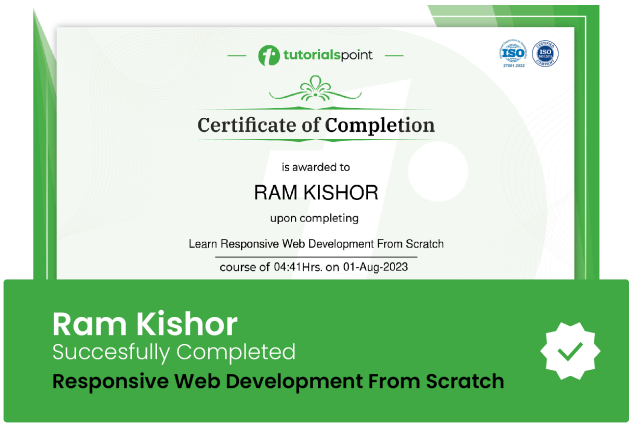Geospatial Data Science: Statistics and Machine Learning
Vector data analysis in Python with GeoPandas, statsmodels, and Scikit-learn

Lectures -61
Duration -12 hours

30-days Money-Back Guarantee
Get your team access to 10000+ top Tutorials Point courses anytime, anywhere.
Course Description
In this course I demonstrate open source python packages for the analysis of vector-based geospatial data. I use Jupyter Notebooks as an interactive Python environment. GeoPandas is used for reading and storing geospatial data, exploratory data analysis, preparing data for use in statistical models (feature engineering, dealing with outlier and missing data, etc.), and simple plotting. Statsmodels is used for statistical inference as it provides more detail on the explanatory power of individual explanatory variables and a framework for model selection. Scikit-learn is used for machine learning applications as it includes many advanced machine learning algorithms, as well as tools for cross-validation, regularization, assessing model performance, and more.
This is a project-based course. I use real data related to biodiversity in Mexico and walk through the entire process, from both a statistical inference and machine learning perspective. I use linear regression as the basis for developing conceptual understanding of the methodology and then also discuss Poisson Regression, Logistic Regression, Decision trees, Random Forests, K-NN classification, and unsupervised classification methods such as K-means clustering.
Throughout the course, the focus is on geospatial data and special considerations for spatial data such as spatial joins, map plotting, and dealing with spatial autocorrelation.
Important concepts including model selection, maximum likelihood estimation, differences between statistical inference and machine learning and more are explained conceptually in a manner intended for geospatial professionals rather than statisticians.
Goals
What will you learn in this course:
- Basic concepts of statistical modeling
- Pandas tools for data preparation
- Feature engineering methods
- Linear Regression
- Logistic Regression
- Other supervised classification methods (CART, K NN, SVM, etc)
- Unsupervised classification methods
- Non-parametric regression
Prerequisites
What are the prerequisites for this course?
- You should be familiar with Python, GeoPandas, and Jupyter Notebooks and have a working environment. This knowledge can be gained through my courses "Survey of Python for GIS applications" and "Geospatial Data Science with Python: GeoPandas
- You should have some familiarity with basic statistics, especially Linear Regression.

Curriculum
Check out the detailed breakdown of what’s inside the course
Introduction
3 Lectures
-
Introduction 06:37 06:37
-
What is machine learning? 05:20 05:20
-
About this course 08:50 08:50
Basic concepts in statistical modeling
11 Lectures

Data Preparation
6 Lectures

Data Analysis - Regression
9 Lectures

More complex regression models
4 Lectures

Categorical response variables with Logistic Regression
8 Lectures

Categorical response variables with decision trees and random forests
6 Lectures

K-Nearest Neighbors classification
2 Lectures

Support Vector Machines Classification
3 Lectures

Unsupervised classification with k-Means
2 Lectures

Machine learning project
2 Lectures

Where to go next?
1 Lectures

Additional material
3 Lectures

Instructor Details

Michael Miller
eCourse Certificate
Use your certificate to make a career change or to advance in your current career.

Our students work
with the Best


































Related Video Courses
View MoreAnnual Membership
Become a valued member of Tutorials Point and enjoy unlimited access to our vast library of top-rated Video Courses
Subscribe now
Online Certifications
Master prominent technologies at full length and become a valued certified professional.
Explore Now


 Updated on May, 2024
Updated on May, 2024
 Language - English
Language - English